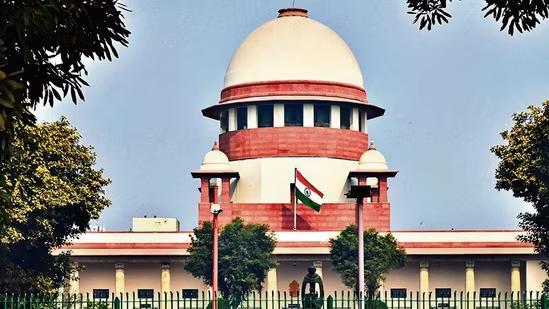
No Action Against Owners of 10 & 15-yr-old Diesel & Petrol Vehicles for 4 Weeks: SC
In a significant ruling, the Supreme Court has put a four-week pause on taking “coercive” action against the owners of over 10-year-old diesel and 15-year-old petrol vehicles in Delhi. The order was passed in response to an application filed by the Delhi government, which challenged the ban on these vehicles as a pollution control measure in the capital.
The Delhi government had approached the Supreme Court, seeking a stay on the ban imposed by the Environment Pollution (Prevention and Control) Authority (EPCA) on vehicles older than 10 years in the diesel segment and 15 years in the petrol segment. The EPCA had imposed the ban to reduce air pollution in Delhi, which has been grappling with severe air quality issues in recent years.
The Supreme Court’s order came as a relief to the owners of these vehicles, who had been fearing penalties and fines for not complying with the ban. The court’s decision will give the vehicle owners some breathing space, and they will not be subjected to coercive action for the next four weeks.
The Delhi government had argued that the ban was unfair and would disproportionately affect low-income groups and senior citizens who rely on these vehicles for their daily commute. The government also pointed out that there were no alternative public transportation options available in many areas of Delhi, making it difficult for people to switch to newer, cleaner vehicles.
The EPCA, on the other hand, had defended the ban, saying it was necessary to reduce the number of polluting vehicles on Delhi’s roads. The authority had also pointed out that many newer vehicles were already complying with the emission norms, and the ban was necessary to ensure that older, polluting vehicles were taken off the road.
The Supreme Court’s order has been seen as a temporary reprieve for the owners of these vehicles, and the court has asked the EPCA and the Delhi government to come up with a comprehensive plan to reduce pollution in the capital. The court has also asked the authorities to explore alternative solutions, such as providing incentives for people to switch to cleaner vehicles or increasing the public transportation options.
The Supreme Court’s decision has been welcomed by many, who feel that it will give the authorities some time to come up with a more comprehensive plan to reduce pollution in Delhi. However, some environmental activists have criticized the decision, saying that it is a setback for efforts to reduce air pollution in the capital.
The Supreme Court’s order is a significant development in the ongoing battle to reduce pollution in Delhi. The city has been grappling with severe air quality issues for several years, and the authorities have been struggling to come up with effective solutions. The ban on older vehicles was seen as an important step towards reducing pollution, but the Supreme Court’s decision has put a temporary hold on the plan.
In conclusion, the Supreme Court’s decision to not take “coercive” action against the owners of over 10-year-old diesel and 15-year-old petrol vehicles in Delhi for four weeks is a significant development in the ongoing battle to reduce pollution in the capital. While the decision has been welcomed by some, it has also been criticized by others, who feel that it is a setback for efforts to reduce air pollution in Delhi. The authorities will now have to come up with a comprehensive plan to reduce pollution in the capital, and explore alternative solutions to make the city a cleaner and healthier place to live.






